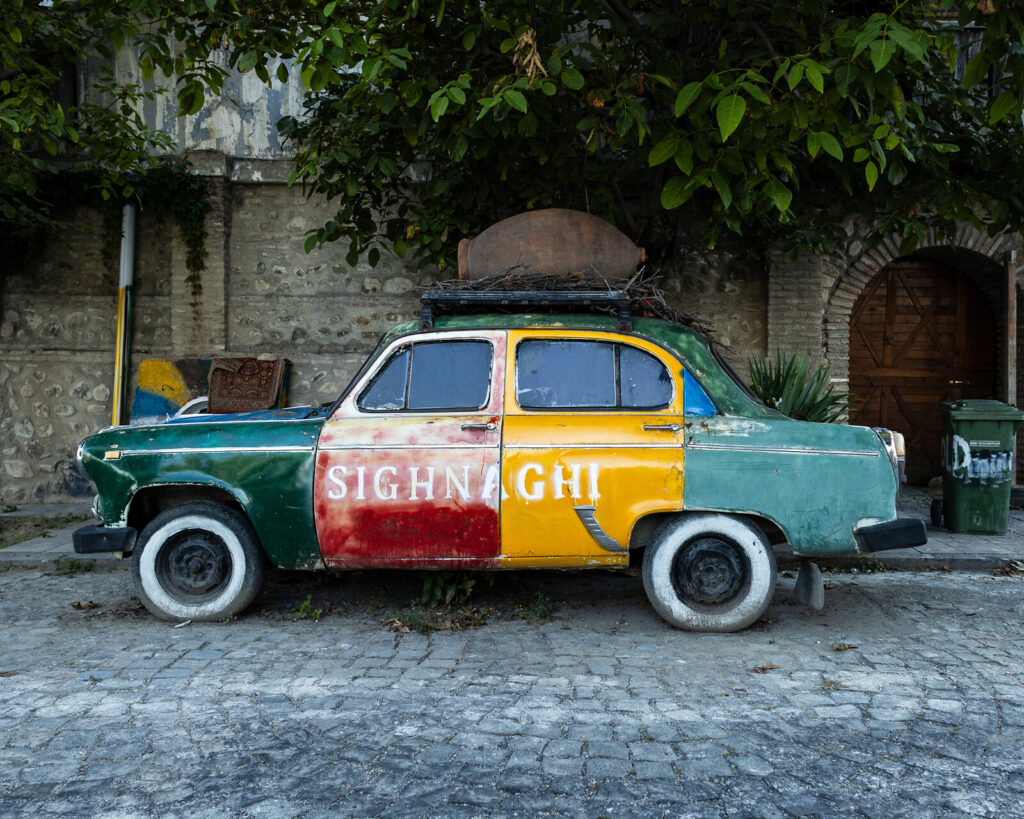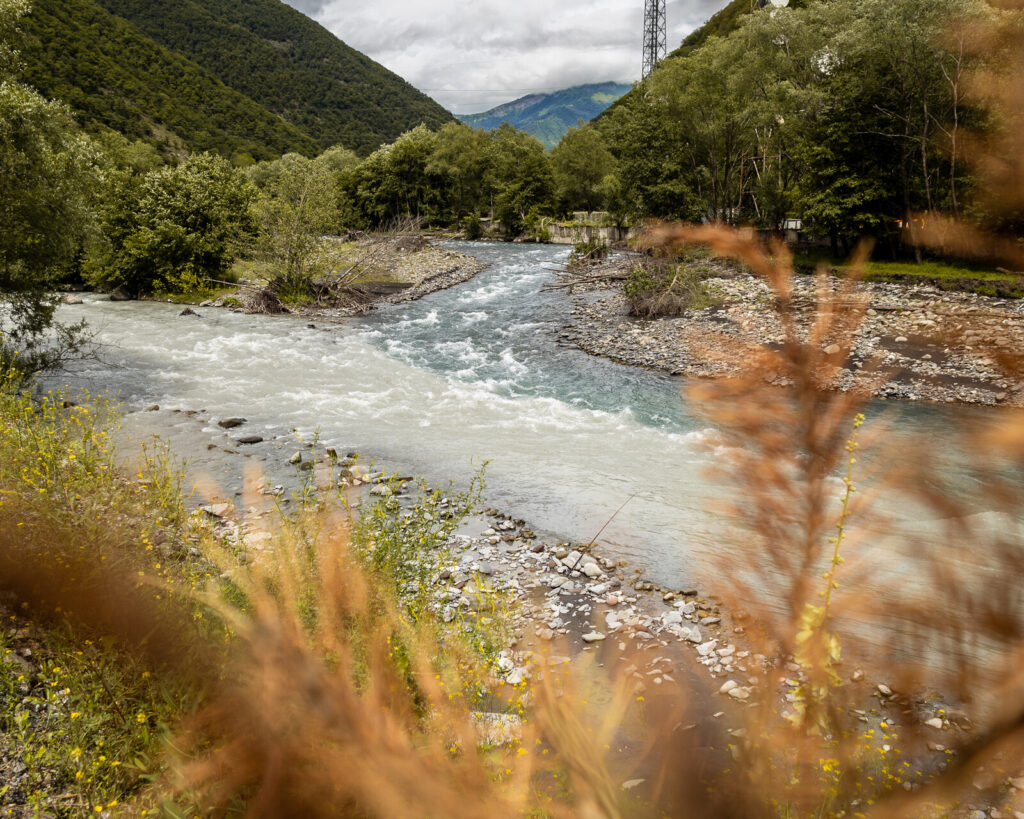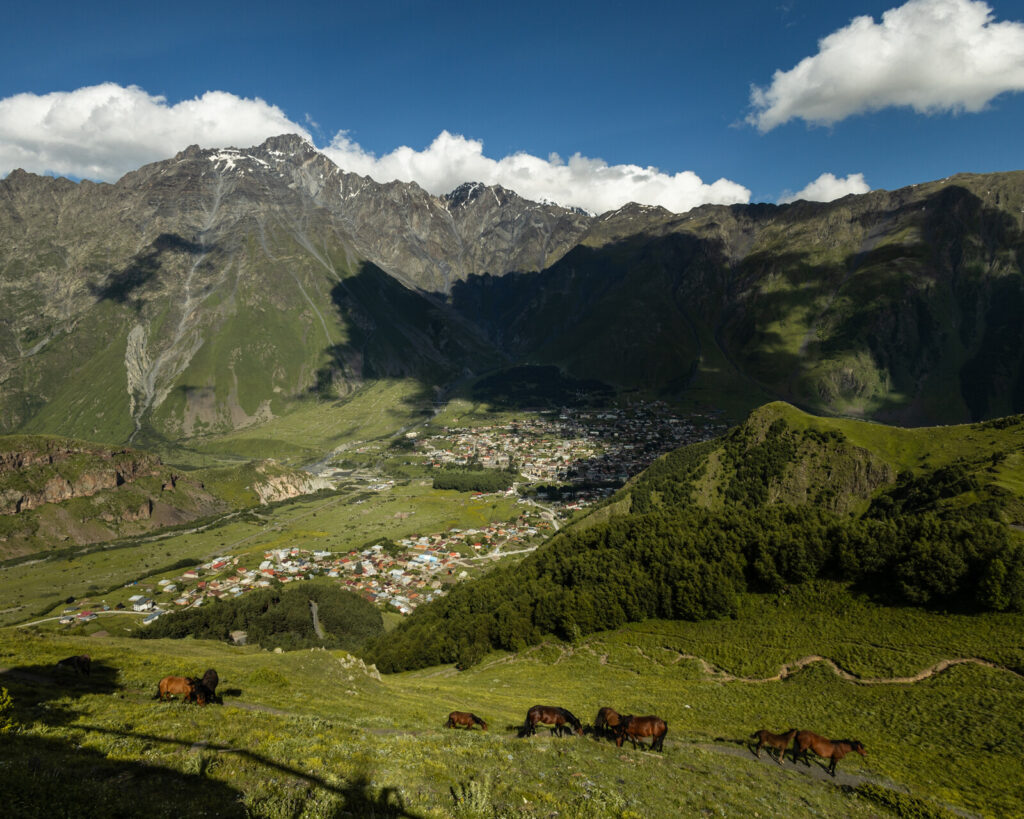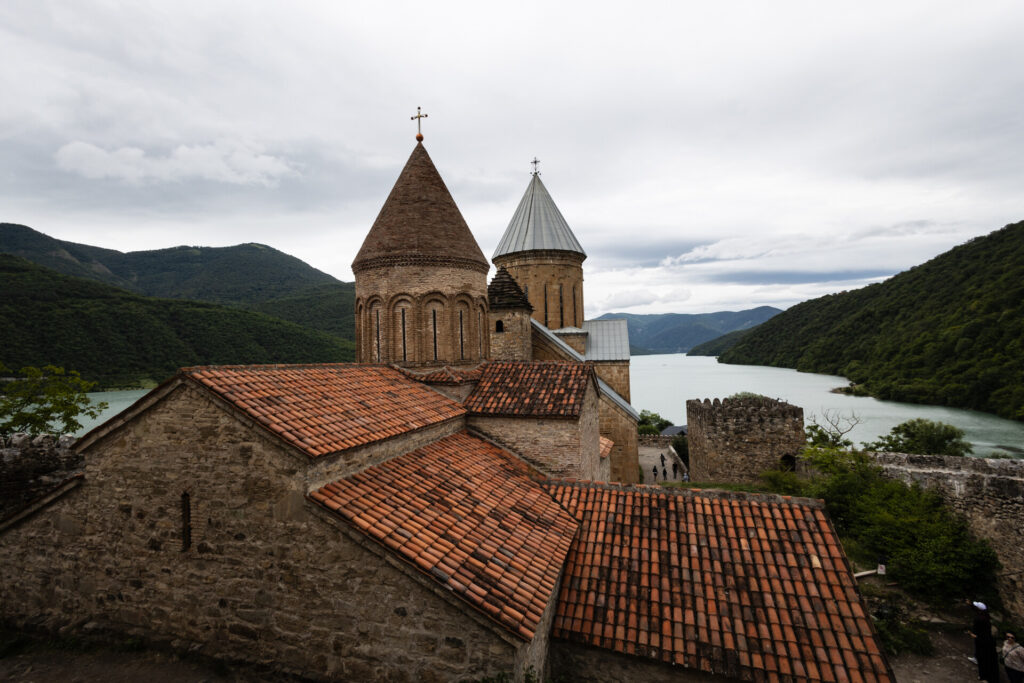Georgia
Georgia, or Sakartvelo as locals call it, is a small country in the South Caucasus that packs a remarkable punch for its size. Tucked between Europe and Asia, it boasts a deep and complex history that dates back to ancient kingdoms like Colchis and Iberia, and claims to be one of the oldest wine-producing regions in the world, and the second state to adopt Christianity as its official religion.
Its capital, Tbilisi, is a vibrant blend of old and new, with sulphur baths, cobbled streets, Soviet-era charm and a fast-growing creative scene. From the dramatic peaks of the Caucasus Mountains to the subtropical coastline of the Black Sea, Georgia’s landscapes are as diverse as its culture. You’ll find Orthodox churches perched on cliffs, medieval fortresses, and ancient cave cities like Uplistsikhe and Vardzia that whisper stories of empires long gone. Georgian hospitality is legendary. Locals often greet guests with a feast called a supra, where homemade wine flows freely and toasts are heartfelt and poetic. The cuisine is unforgettable, with rich khachapuri, fragrant khinkali, and bold flavours shaped by Persian, Ottoman and Russian influences. Despite its growing popularity, Georgia remains incredibly affordable, making it a dream destination for travellers seeking authenticity, adventure and warmth.
While there aren’t many countries we’d visit twice before ticking off our long list of travel destinations, Georgia is a clear exception. For such a small country, it offers so much that one trip simply isn’t enough. We loved it so much we almost had are wedding there and that we even found ourselves dreaming of retiring there one day.
Peak: May-Jun & Sep-Oct | Pleasant (15–28°C)
Quieter: Mar-Apr & Nov | Cool (8-18°C), fewer tourists.
Avoid: Jul-Aug (30–40°C), Dec–Feb (can drop to -5°C, especially in the mountains)
We went in July and it hot in Tbilisi in the sun but still pleasant and still lovely compared to Dubai.
Cards are accepted in Tbilisi and other big towns, but cash is king in rural areas.
Carry USD/EUR. We exchanged in Dubai, but you can get good rates in Tbilisi as well in hotels etc. A few places accepted dirhams too for the deposit, such as car rentals.
Avoid exchanging at airport.
Georgian (official) Russian is also understood, especially by older generations.
English is common in Tbilisi and tourist areas, but rare in rural regions.
Locals are warm and helpful, so a mix of smiles, gestures, and Google Translate works well.
Tbilisi, Mtskheta, Kazbegi (Stepantsminda), Kakheti (wine region – including Telavi and Sighnaghi), Gudauri, Batumi, Kutaisi, Mestia and Ushguli (Svaneti region), Uplistsikhe, Vardzia Cave Monastery, Borjomi, Davit Gareja Monastery Complex.
Khachapuri (cheese-filled bread, especially Adjarian style), Khinkali (juicy meat dumplings), Lobio (spiced bean stew), Mtsvadi (grilled meat skewers), Badrijani (fried eggplant with walnut paste), Churchkhela (nut and grape juice snack), Pkhali (vegetable and walnut pâté).
Trains: Intercity trains connect major cities like Tbilisi, Kutaisi, and Batumi. Fast, scenic, and affordable.
Metro: Only in Tbilisi. Cheap and efficient for city center travel.
Marshrutkas: Fixed-route minivans connecting most cities, towns, and villages; common and affordable. Expect experienced but rash driving.
Taxi: Widely used and affordable via apps like Bolt/Yandex Go; short city rides typically start around 3-5 GEL. Avoid airport taxis and regular taxis for scams.
Car Rental: Great for exploring regions like Kazbegi, Kakheti, and Svaneti; 4WD recommended for remote mountain areas.
Magti, Silknet (formerly Geocell), and Cellfie (formerly Beeline). SIM cards and eSIMs are easy to get at the airport or in local shops. Airport prices are higher, if you can wait to get to the city you’ll get a better value. Magti is most recommended for country-wide coverage, especially in rural and mountain areas.
Georgian hospitality is truly legendary! If you’re invited to a traditional feast, or ‘supra’, prepare for a memorable evening. The ‘tamada’ (toastmaster) leads profound toasts with homemade wine, often poured from a traditional drinking horn. This homemade wine is a staple of their hospitality; you’ll likely be offered it even when staying in a guesthouse, especially in the Kakheti wine region. A standard line we often heard from every guesthouse was ‘Coffee, Tea, Vino?’. And even if your hosts don’t speak English, their warmth ensures you’ll feel welcome and be invited to join them for a meal.





